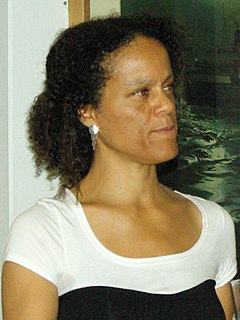
Franklin Patrick Herbert Jr. was an American science-fiction author best known for the 1965 novel Dune and its five sequels. Though he became famous for his novels, he also wrote short stories and worked as a newspaper journalist, photographer, book reviewer, ecological consultant, and lecturer.

Margaret Eleanor Atwood is a Canadian poet, novelist, literary critic, essayist, inventor, teacher, and environmental activist. Since 1961, she has published 18 books of poetry, 18 novels, 11 books of non-fiction, nine collections of short fiction, eight children's books, and two graphic novels, as well as a number of small press editions of both poetry and fiction. Atwood has won numerous awards and honors for her writing, including the Booker Prize (twice), Arthur C. Clarke Award, Governor General's Award, Franz Kafka Prize, and the National Book Critics and PEN Center USA Lifetime Achievement Awards. A number of her works have been adapted for film and television, increasing her exposure.

An anachronism is a chronological inconsistency in some arrangement, especially a juxtaposition of persons, events, objects, or customs from different periods. The most common type of anachronism is an object misplaced in time, but it may be a verbal expression, a technology, a philosophical idea, a musical style, a material, a plant or animal, a custom, or anything else associated with a particular period that is placed outside its proper temporal domain.
Philip José Farmer was an American author known for his science fiction and fantasy novels and short stories.

Philip Milton Roth was an American novelist and short-story writer.
Whig history is an approach to historiography that presents the past as an inevitable progression towards ever greater liberty and enlightenment, culminating in modern forms of liberal democracy and constitutional monarchy.
Postmodern literature is a form of literature that is characterized by the use of metafiction, unreliable narration, self-reflexivity, intertextuality, and which often thematizes both historical and political issues. This style of experimental literature emerged strongly in the United States in the 1960s through the writings of authors such as Kurt Vonnegut, Thomas Pynchon, and John Barth. Postmodernists often challenge authorities, which has been seen as a symptomatic of the fact that this style of literature first emerged in the context of political tendencies in the 1960s. This inspiration is, among other things, seen through how postmodern literature is highly self-reflexive about the political issues it speaks to.

Dune is a science fiction media franchise that originated with the 1965 novel Dune by Frank Herbert and has continued to add new publications up to 2017. Dune is frequently cited as the best-selling science fiction novel in history. It won the 1966 Hugo Award and the inaugural Nebula Award for Best Novel, and was later adapted into a 1984 film and a 2000 television miniseries. Herbert wrote five sequels, and the first two were presented as a miniseries in 2003. The Dune universe has also inspired some traditional games and a series of video games. Since 2009, the names of planets from the Dune novels have been adopted for the real-world nomenclature of plains and other features on Saturn's moon Titan.
Hayden White was an American historian in the tradition of literary criticism, perhaps most famous for his work Metahistory: The Historical Imagination in Nineteenth-Century Europe (1973/2014).
Sir Herbert Butterfield was Regius Professor of History and Vice-Chancellor of the University of Cambridge. As a British historian and philosopher of history, he is remembered chiefly for a short volume early in his career entitled The Whig Interpretation of History (1931) and for his Origins of Modern Science (1949). Butterfield turned increasingly to historiography and man's developing view of the past. Butterfield was a devout Christian and reflected at length on Christian influences in historical perspectives.

Catherine Elizabeth Grenville is an Australian author. She has published fifteen books, including fiction, non-fiction, biography, and books about the writing process. In 2001, she won the Orange Prize for The Idea of Perfection, and in 2006 she won the Commonwealth Writers' Prize for The Secret River. The Secret River was also shortlisted for the Man Booker Prize.
Collaborative fiction is a form of writing by a group of three or more authors who share creative control of a story.

A biography, or simply bio, is a detailed description of a person's life. It involves more than just the basic facts like education, work, relationships, and death; it portrays a person's experience of these life events. Unlike a profile or curriculum vitae (résumé), a biography presents a subject's life story, highlighting various aspects of his or her life, including intimate details of experience, and may include an analysis of the subject's personality.
Literary realism is part of the realist art movement beginning with mid-nineteenth-century French literature (Stendhal), and Russian literature and extending to the late nineteenth and early twentieth century. Literary realism attempts to represent familiar things as they are. Realist authors chose to depict everyday and banal activities and experiences, instead of using a romanticized or similarly stylized presentation.

There have been many attempts at defining science fiction. This is a list of definitions that have been offered by authors, editors, critics and fans over the years since science fiction became a genre. Definitions of related terms such as "science fantasy", "speculative fiction", and "fabulation" are included where they are intended as definitions of aspects of science fiction or because they illuminate related definitions—see e.g. Robert Scholes's definitions of "fabulation" and "structural fabulation" below. Some definitions of sub-types of science fiction are included, too; for example see David Ketterer's definition of "philosophically-oriented science fiction". In addition, some definitions are included that define, for example, a science fiction story, rather than science fiction itself, since these also illuminate an underlying definition of science fiction.

Bernardine Evaristo, MBE FRSL FRSA, FEA, is a British author of eight works of fiction. Her bestselling novel, Girl, Woman, Other, jointly won the Booker Prize in 2019, alongside Margaret Atwood's The Testaments. It was also one of Barack Obama's 19 Favourite Books of 2019. Evaristo's writing also includes short fiction, drama, poetry, essays, literary criticism, and projects for stage and radio. Two of her books, The Emperor's Babe (2001) and Hello Mum (2010), have been adapted into BBC Radio 4 dramas. She is currently Professor of Creative Writing at Brunel University London and the vice-chair of the Royal Society of Literature.

Literature, most generically, is any body of written works. More restrictively, literature refers to writing considered to be an art form or any single writing deemed to have artistic or intellectual value, often due to deploying language in ways that differ from ordinary usage.

A novel is a relatively long work of narrative fiction, normally written in prose form, and which is typically published as a book. The present English word for a long work of prose fiction derives from the Italian novella for "new", "news", or "short story of something new", itself from the Latin novella, a singular noun use of the neuter plural of novellus, diminutive of novus, meaning "new". Walter Scott made a distinction between the novel, in which "events are accommodated to the ordinary train of human events and the modern state of society" and the romance, which he defined as "a fictitious narrative in prose or verse; the interest of which turns upon marvellous and uncommon incidents". However, many such romances, including the historical romances of Scott, Emily Brontë's Wuthering Heights and Herman Melville's Moby-Dick, are also frequently called novels, and Scott describes romance as a "kindred term". This sort of romance is in turn different from the genre fiction love romance or romance novel. Other European languages do not distinguish between romance and novel: "a novel is le roman, der Roman, il romanzo, en roman." Most European languages use the word "romance" for extended narratives.

Soft science fiction, or soft SF, is a category of science fiction with two different definitions.
- It explores the "soft" sciences, and especially the social sciences, rather than engineering or the "hard" sciences.
- It is not scientifically accurate or plausible; the opposite of hard science fiction.
When studying literature, biography and its relationship to literature is often a subject of literary criticism, and is treated in several different forms. Two scholarly approaches use biography or biographical approaches to the past as a tool for interpreting literature: literary biography and biographical criticism. Additionally, two genres of fiction rely heavily on the incorporation of biographical elements into their content, biographical fiction and autobiographical fiction.











